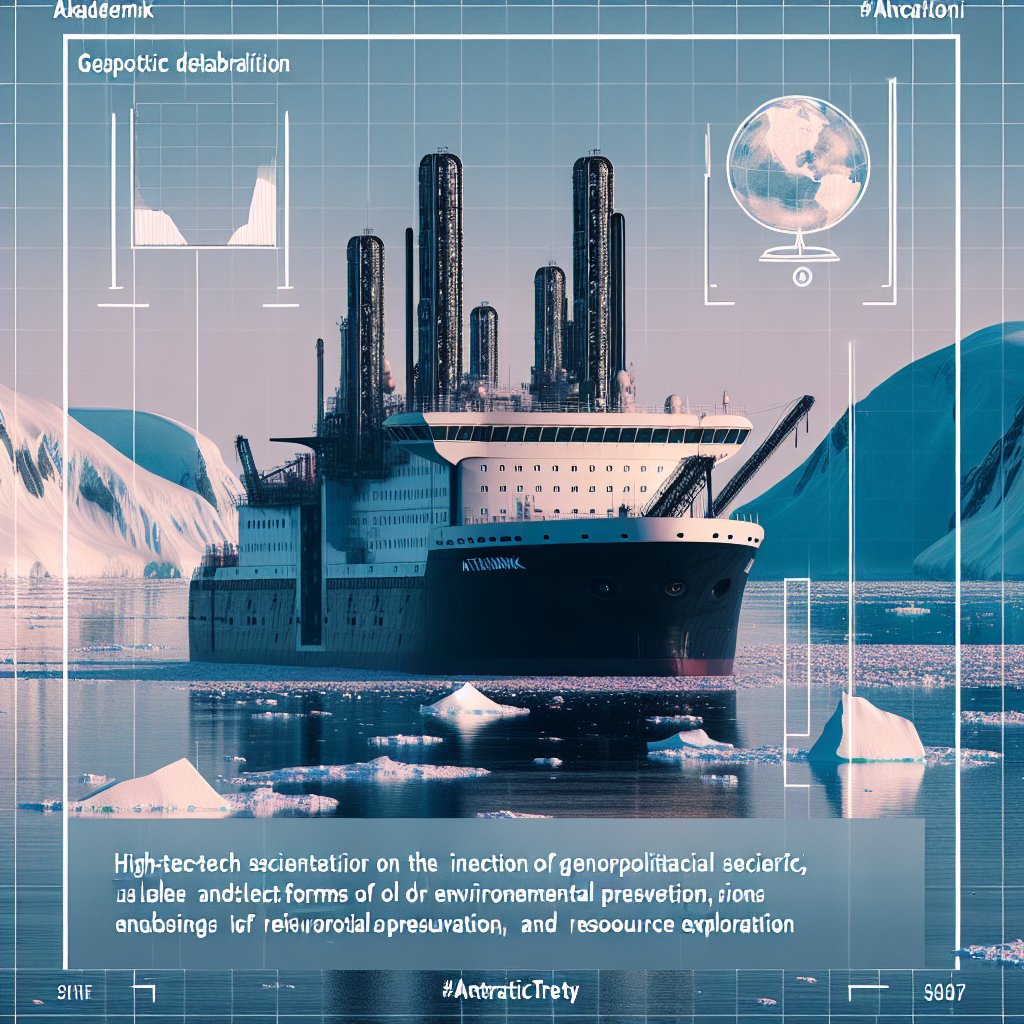Image created by AI
US Hits Russian Antarctic Research Vessel with Sanctions amid Oil and Gas Concerns
The United States government has recently announced sanctions targeting the Akademik Alexander Karpinsky, a Russian state-owned seismic survey vessel, which has conducted extensive oil and gas explorations in the fragile ecosystems of Antarctica's Southern Ocean. The Karpinsky's activities, primarily staged from Cape Town, have drawn international attention to the delicate balance between environmental conservation and the pursuit of natural resources within this largely untouched marine wilderness.
These latest sanctions are in part a response marking two years since Russia's military incursion into Ukraine on February 24, 2022, compounded by the demise of Russian opposition figure Alexei Navalny in a Siberian detention facility. The Karpinsky, linked to the comprehensive accumulation of seismic data across a vast 4.5 million km² area in the Southern Ocean, falls under the purview of Polar Marine Geosurvey Expedition (PMGE), a branch of Rosgeo tasked with exploration and research. Both PMGE and Rosgeo are now included in a list of over 500 US-sanctioned entities and individuals.
Flouting an international ban on mining within the region, which has been in effect since 1998, the vessel's registration records indicate planned activities for "marine geological-geophysical studies" in the Amundsen Sea of West Antarctica and the Ross Sea in the east for the current research season. The sanctions raise questions about the Karpinsky's future operations and port calls, including potential implications on local shipping agents who might hesitate to service the vessel to avoid secondary repercussions, much as what transpired with a Russian military cargo ship in Port Elizabeth in late 2022.
Experts like Professor Donald Rothwell highlight that these US sanctions do not legally bind other nations. According to Rothwell, the sanctions are unlikely to significantly disrupt the Karpinsky's Antarctic assignments given that the US is not a direct gateway for Antarctic voyages. Yet, they may potentially influence the vessel's access to ports in nations closely allied with the US, including Australia, which is reevaluating its stance on mirroring American sanctions policy.
Despite the environmental protections under the Antarctic Treaty's Madrid Protocol, which bars "mineral resource activities" in the region, Rosgeo's PMGE contends that their seismic surveys are scientific in nature. However, Kremlin-backed reports and scholarly articles have been bold in weighing the hydrocarbon potentials and geopolitical significance of these resources within the polar continent, raising suspicions about the true intentions behind what is purported to be research.
The Akademik Alexander Karpinsky’s presence in the Southern Hemisphere has not been inconspicuous. The vessel’s activities, particularly its aggregation of oil and gas data, have sparked protests and drawn attention from several experts in polar law and earth sciences. Speculations regarding the impact of US sanctions on the future prospects of the Karpinsky have been rampant. While sanctions may impede the ship’s access to some ports, South American harbors could remain receptive.
Acknowledging the complexities inherent to Antarctic prospecting and research, professionals like Professor Alan Hemmings accentuate the broader implications of the mining ban under the treaty, which starkly prohibits any activities tied to mineral resources outside the domain of research. The resistance against potential mineral exploitation echoes the wider environmental debate surrounding the preservation of the Antarctic.
The repercussions of the US sanctions on the Russian polar fleet are yet to be fully realized, especially in relation to the fleet's use of South African ports for access to Antarctica. Hemmings implies that political dynamics as observed in the aftermath of the International Court of Justice's Gaza Case may inform how South Africa approaches this issue moving forward.
Ultimately, The Akademik Alexander Karpinsky sails into a future grappled with international legalities, environmental ethics, and the oscillating tides of geopolitical power plays. The unfolding scenario underscores a pivotal moment that might redefine the status quo of Antarctic governance and the stewardship of its invaluable natural resources.










